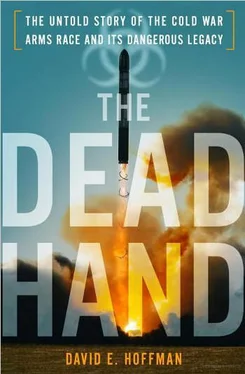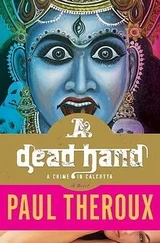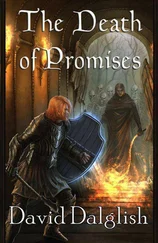Matlock was surprised at Gorbachev’s timidity. Why didn’t he fire these appointees trying to usurp his power? On June 20, Matlock had coffee with Gavriil Popov, a close ally of Yeltsin who had just been elected mayor of Moscow on the shoulders of the growing democratic movement. When they were alone in the library at Spaso House, the ambassador’s residence, Popov took out a sheet of paper, scribbled a note and handed it to Matlock. In a large, uneven Russian scrawl, it said:
A COUP IS BEING ORGANIZED TO REMOVE GORBACHEV.
WE MUST GET WORD TO BORIS NIKOLAYEVICH.
Yeltsin was at that moment in the United States.
Matlock then wrote on the same sheet:
I’LL SEND A MESSAGE. BUT WHO IS BEHIND THIS?
Popov wrote on the paper and shoved it back to Matlock:
PAVLOV, KRYUCHKOV, YAZOV, LUKYANOV
Popov took the paper back when Matlock had read it, tore it into small pieces and put them in his pocket. 10
Matlock sent an urgent message to Washington for Bush, who was to meet with Yeltsin at the White House later that day. Within hours, Matlock was instructed to take a warning to Gorbachev. About 8:20 P.M.in Moscow, early evening but still broad daylight at this time of year, Matlock arrived at Gorbachev’s office. Chernyaev was present. Gorbachev greeted him as “Comrade Ambassador!” and lavished praise on Matlock, which made him uncomfortable. Matlock sat at the long table in Gorbachev’s office facing the window, with Gorbachev and Chernyaev on the other side.
“Mr. President,” Matlock said, “President Bush has asked me to notify you of a report we have received which we find greatly disturbing, although we cannot confirm it. It is based on more than rumor but less than hard information. It is that there is an effort under way to remove you, and it could happen at any time, even this week.”
Matlock did not name his source. He was trying to convey that the information was not from intelligence sources, but that was just what Chernyaev and Gorbachev assumed he was saying. On his notepad, Chernyaev wrote, “American services” had given the warning the coup would be the next day. 11
Both Gorbachev and Chernyaev laughed. Matlock recalled that Gorbachev then grew serious. “Tell President Bush I am touched. I have felt for some time that we are partners, and now he has proved it. Thank him for his concern. He has done just what a friend should do. But tell him not to worry. I have everything well in hand. You’ll see tomorrow.”
According to Chernyaev, Gorbachev also said, “It’s a hundred percent improbable.” 12
After Matlock spoke, Gorbachev lapsed into a soliloquy, saying that things were unsettled, Pavlov was inexperienced and had realized the mistake of his power grab earlier in the week, Yeltsin was being more cooperative, a new union treaty would soon be signed and Gorbachev’s visit to the London summit would be a further step into the world economy.
Looking back, Matlock said later that Gorbachev may have wrongly interpreted what he was saying, and assumed he was referring to the reactionary forces in parliament as the source of trouble. Chernyaev’s notes confirm Gorbachev mistakenly thought Matlock was referring to the parliamentary hard-liners, not Kryuchkov of the KGB and Yazov from the military.
The next day Pavlov’s power-grab proposal was defeated in parliament. Talking to reporters afterward, Gorbachev was flanked by a grim Yazov, Pugo and Kryuchkov, and said, with a large grin, “The ‘coup’ is over.” 13But Matlock was not sanguine about Gorbachev. “He was the one with the most to lose, and yet he was acting like a somnambulist, wandering around oblivious to his surroundings.” In fact, Gorbachev got warnings from other sources, too. Just after Matlock left, Gorbachev told Chernyaev that he’d received a warning the day before from his special envoy, Yevgeny Primakov.
“Beware!” Primakov had insisted. “You’re trusting the KGB and your security service too much. Are you sure you are safe?”
Gorbachev replied, “What a chicken! I told him, ‘Zhenya, calm down. You of all people shouldn’t yield to panic.’” 14
Two nights after Matlock’s warning, Bush phoned Gorbachev, who brushed off the chances of a coup.
“A thousand percent impossible,” he said. 15
On June 21, Valery Yarynich walked into a small conference room with a single wood table on the upper floors of the Institute for World Economy and International Relations, a prestigious Soviet research institute in Moscow. Yarynich was the expert on communications who had worked many years in the Strategic Rocket Forces. He worked on Perimeter, the semiautomatic system for launching a retaliatory nuclear strike. Perimeter was still ultra-secret. After Perimeter was finally put into operation in 1985, Yarynich served during the Gorbachev years at a think tank inside the military’s General Staff headquarters in Moscow, where he concluded, based on mathematical models, that deterrence could be guaranteed with far fewer nuclear weapons.
Yarynich was invited to the conference room to participate in a meeting between Russian and American civilian experts on the problems of command and control of nuclear forces. Such a meeting would have been unheard of in earlier years, but in the atmosphere of greater openness, it was possible to talk about subjects that had long been strictly offlimits. Waiting in the conference room was one of the foremost civilian experts in the United States on nuclear command and control, Bruce Blair, a senior fellow at the Brookings Institution, a leading Washington think tank. Blair came in a coat and tie, and carried a small notebook. He had a lot of questions. During service in the Air Force, he spent two years as a Minuteman missile launch officer in the early 1970s, working shifts in underground silos. Subsequently, he carried out top-secret research on the vulnerability of American command and control of nuclear weapons for the Congressional Office of Technology Assessment. At Brookings, Blair wrote a book about American nuclear systems, Strategic Command and Control . For his next book, Blair had been searching, since 1987, for clues about Soviet command and control. While Blair had valuable sources in the United States, it was excruciatingly difficult to learn the truth in the Soviet Union; anything about nuclear command and control was top secret. Often, Blair gathered fragments of information but could not figure out the larger picture. Day after frustrating day, in countless smoke-filled rooms, he conducted interviews. When he met with Yarynich in the conference room, Blair realized he had finally connected with a real expert, someone who shared Blair’s depth of knowledge about launch systems and procedures. Yarynich emphasized that he was speaking only for himself, not for his superiors. “He’s here on his own, a confidential meeting,” Blair wrote in his notebook. He also noted that Yarynich was from the Center for Operational and Strategic Research in the General Staff, a specialist on command and control. However, Blair didn’t write down Yarynich’s name; in his view it was still too sensitive.
Blair found it took hours and hours of conversation to extract anything useful from Soviet military officers. But Yarynich was surprisingly assertive; he seemed to be “someone who had a lot on his mind.” Yarynich told Blair a Kremlin leader might have only two to four minutes to make a decision about retaliation if warned of a missile attack. The Soviet leader might have to make a decision in the dangerous situation known as “launch on warning,” in other words, firing off nuclear missiles based entirely on a warning. If a false warning, it could be a disastrous decision. Blair took careful notes.
From his American sources, Blair had heard of a Soviet system called the Dead Hand, a computer-driven machine that would, in the event the Soviet leadership were wiped out, launch a retaliatory attack without human hands on the button. When Blair asked about it, Yarynich responded that there was no Dead Hand in the Russian system. Blair wrote those words in his notebook. But Yarynich was careful to tell Blair something else, too. There was no automatic Dead Hand, but there was a semiautomatic system of some kind. Blair didn’t fully comprehend that day what Yarynich was telling him, but some details were in his notes. He didn’t connect the dots, at first. 16
Читать дальше












